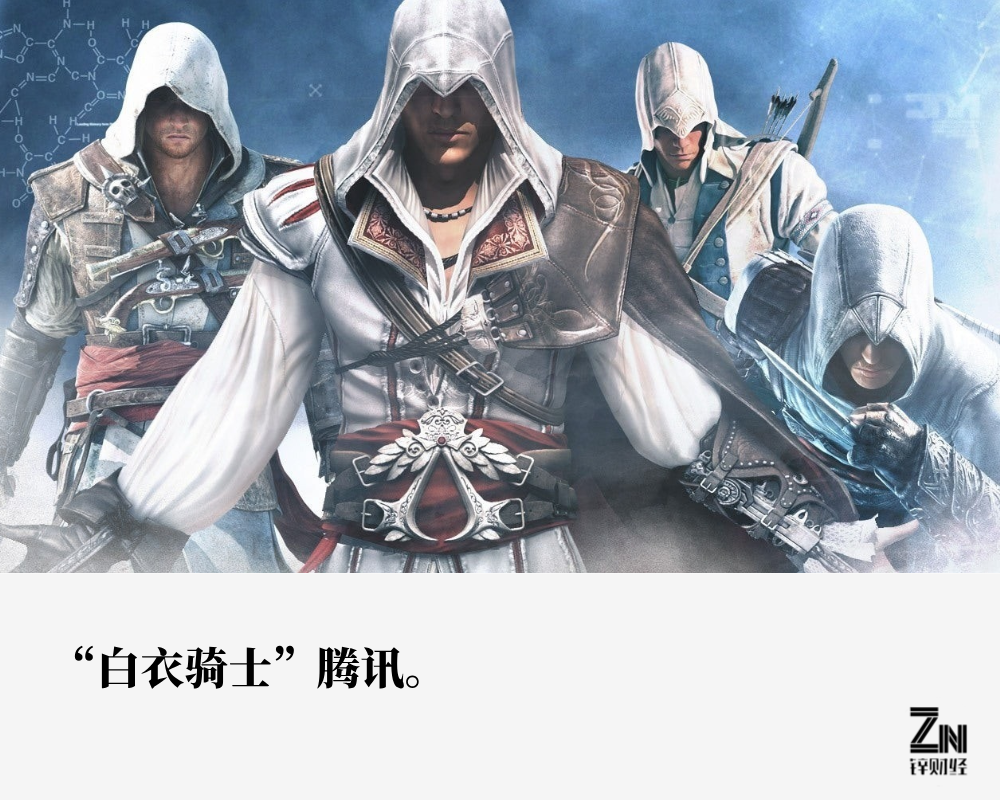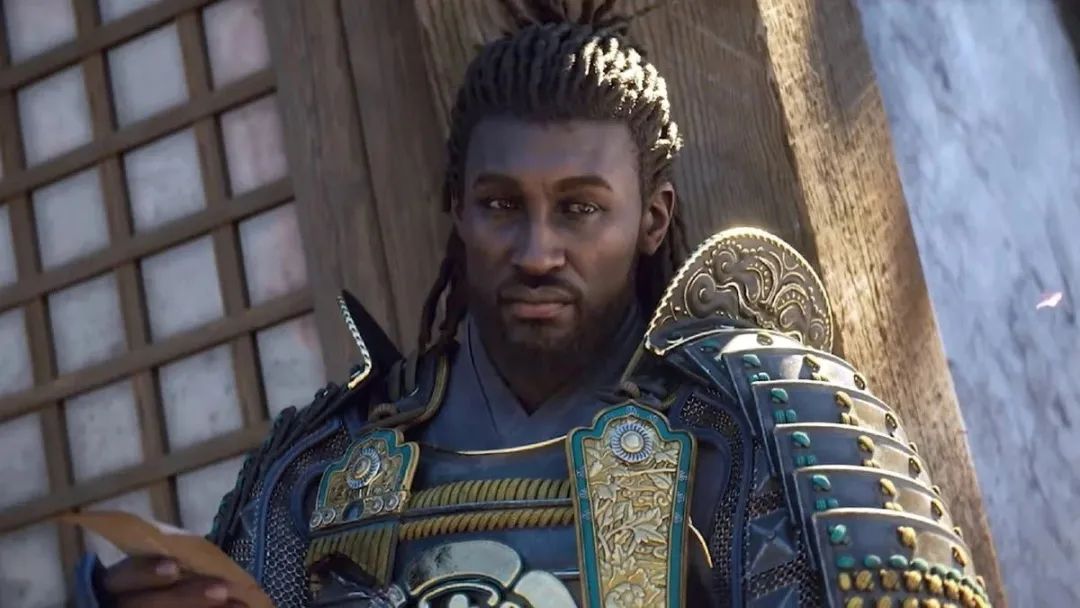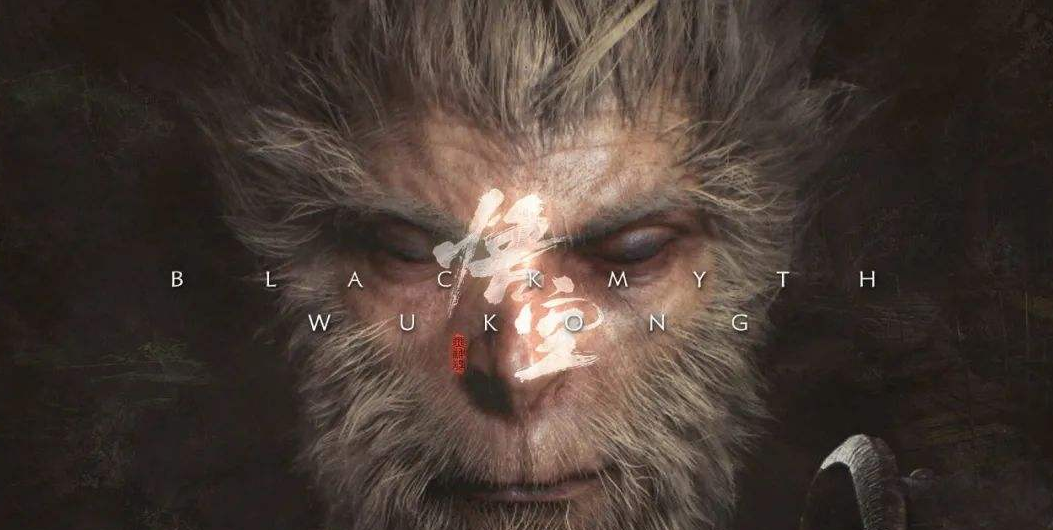"Assassin's Creed" myth shattered, will Ubisoft soon sell itself to Tencent?
![]() 10/18 2024
10/18 2024
![]() 547
547

Author|Sun Pengyue
Editor|Da Feng
Recently, another major news broke in the gaming industry:
Bloomberg reported that Tencent and the Guillemot family, the founders of Ubisoft, are discussing ways to help Ubisoft stabilize its development and increase its value, including the possibility of jointly privatizing the company.
Subsequently, Ubisoft did not deny the authenticity of the news in its announcement, but expressed ambiguity: For the benefit of stakeholders, Ubisoft regularly reviews all strategic options and communicates with the market at the appropriate time.
On that day, Ubisoft's share price surged 33.52%, marking its largest single-day gain since 1996.
If this acquisition is completed, it will be another historic event after Microsoft's acquisition of Blizzard.
Ubisoft in turmoil
Founded in 1986, Ubisoft has been a "big player" in the 3A gaming industry with its classic games.
Especially the 3A game "Assassin's Creed" launched in 2007, which conquered global players with its unprecedented open game world, becoming a popular game IP worldwide.
As of 2024, "Assassin's Creed" has launched 14 installments, spawning numerous spin-offs, leaving a vast amount of classic scenes and many memes, making it a veritable gold standard under Ubisoft's banner.
In 2022, Ubisoft announced that the global sales of the "Assassin's Creed" series had surpassed 200 million copies, making it the first member of the 200 million club.
However, 17 years after the first "Assassin's Creed," this gold standard has gradually faded, especially as most of Ubisoft's games share similar background templates and gameplay mechanics, leading to a significant decline in game quality and a drop in player expectations to an all-time low.
Furthermore, as a French company, Ubisoft is deeply influenced by political correctness and progressive liberalism. In recent years, Ubisoft has gradually increased its emphasis on racial diversity and gender equality in game development, which has caused widespread dissatisfaction among players.
A prime example is the latest installment, "Assassin's Creed: Mirage," which, despite being set in a Japanese cultural context with samurai and ninja as the main characters, features a black samurai with dreadlocks as the protagonist.

"Assassin's Creed: Mirage"
This has angered many Japanese players, who see it as a gross insult to their culture, leading to large-scale boycotts.
On a Japanese petition website, the number of signatures calling for the cancellation of "Assassin's Creed: Mirage" has surpassed 100,000.
Finally, in July this year, Ubisoft succumbed to the pressure and apologized, delaying the game's release to February 2025.
Ubisoft's struggles extend far beyond "Assassin's Creed." In 2024, Ubisoft released a total of 9 new games, but none of them gained significant influence.
Even "Star Wars: Bounty Hunter," a derivative game based on the beloved American franchise, struggled due to numerous bugs, selling only 1 million copies in its first month despite its popularity.
In May this year, Ubisoft released its financial report for fiscal year 2023, revealing sales of 2.3 billion euros over 12 months ending March 31, 2024, but a loss of 586 million euros in profits compared to the previous year.
Ubisoft has been hit hard by declining market sales and plunging share prices. Today, Ubisoft is worth only 1.71 billion euros (approximately 13 billion Chinese yuan), just one-twentieth of its rival EA's market value.
Since the massive success of "Black Myth: Wukong," Game Science's market value has soared to approximately 1.8 billion USD, surpassing that of Ubisoft, a nearly 40-year-old industry veteran, after just a few years of effort.
Tencent comes to Ubisoft's rescue again
With Ubisoft on the brink of collapse, few have the resources to save it. Tencent, seemingly unrelated, has become a lifeline.
As the world's largest gaming company, Tencent has always admired Ubisoft and even came to its rescue a few years ago.
In 2015, the French conglomerate Vivendi attempted a hostile takeover of Ubisoft, first acquiring its mobile gaming subsidiary Gameloft and then continuously increasing its stake in Ubisoft.
By 2018, Vivendi held 27.3% of Ubisoft's shares, making it the largest shareholder.
Ubisoft repeatedly opposed Vivendi's involvement, arguing that it would derail the company's development: "We want to remain independent forever and not board a ship doomed to sink."
Just as Ubisoft was on the brink of collapse, Tencent unexpectedly emerged as a "white knight."

Ubisoft France
In 2018, Tencent joined forces with Ubisoft, the Guillemot family, and the Ontario Teachers' Pension Plan Board to purchase Vivendi's stake in Ubisoft for 2 billion euros, effectively ousting Vivendi.
Tencent not only came to the rescue but also demonstrated a chivalrous spirit by keeping a low profile. Despite holding a 5% stake in Ubisoft, Tencent does not have voting rights or a seat on the board under the agreement between the parties. Additionally, Tencent cannot increase or decrease its stake in Ubisoft without Ubisoft's board approval.
In 2022, when Ubisoft's share price collapsed, Tencent reached an agreement with Ubisoft's CEO and Chairman to continue increasing its stake at a premium. As of May this year, Tencent directly held 9.986% of Ubisoft's shares, indirectly held 7.485%, and possessed 9.191% of the voting rights.
Clearly, Tencent values Ubisoft's game development capabilities. However, Ubisoft has maintained an ambiguous stance, seemingly reluctant yet reliant on Tencent's support.
With the explosion of "Black Myth: Wukong," Tencent's renewed ties with Ubisoft have sparked much speculation.
On September 27, market research firm VG Insights released data showing that "Black Myth: Wukong" had sold an astonishing 20.9 million copies on the Steam platform, generating over $1 billion in revenue.
After six years of development and over 100 million yuan invested, the game recouped its costs within a day of its launch. Such a highlight is indeed rare in gaming history.
This astonishing data is seen as a sign that the Chinese game market has opened its doors to 3A games.
As the leader in the gaming industry, it is only natural for Tencent to take an interest in the 3A game space.
Will Tencent enter the 3A game market?
In 2024, Tencent has been a "winner" in the gaming industry.
Apart from its flagship games "Honor of Kings" and "Game for Peace," Tencent's new mobile game project "Dungeon & Fighter: Origin" launched in May this year achieved the strongest start in Tencent's gaming history, generating over 5 billion yuan in revenue in its first month.
According to Sensor Tower, "Dungeon & Fighter: Origin" surpassed the combined revenue of "Honor of Kings" and "Game for Peace" and topped the global mobile game revenue charts in June.
Having reached the ceiling in the mobile game space, Tencent is seeking new breakthroughs in new areas.
Therefore, 3A games have become the natural choice.
The term "3A" typically refers to "A lot of money," "A lot of resources," and "A lot of time."
A 3A game often represents the industry's top production quality, technological achievements, and significant influence.

"Black Myth: Wukong"
Since 2018, Tencent has gradually extended its reach to top 3A game teams.
In 2019, Tencent invested in renowned game developers such as Fatshark (notable for "Warhammer: Vermintide"), Funcom ("Barbarian Conan"), Sumo ("Crackdown 3"), PlatinumGames ("Bayonetta"), and Marvelous ("Harvest Moon"). Additionally, Tencent acquired Sharkmob, the former development team behind "Tom Clancy's The Division."
In 2022, Tencent invested in FromSoftware, acquiring a 16.25% stake and becoming the company's second-largest shareholder. FromSoftware is known for developing "Sekiro: Shadows Die Twice" and "Elden Ring," both of which won TGA's Game of the Year award in 2019 and 2022, respectively.
Even Game Science, the developer of "Black Myth: Wukong," received investment from Tencent in 2021, with Tencent holding a 5% stake.
Overall, while Tencent has not directly developed a 3A game, it has invested in and collaborated with numerous top game teams worldwide.
If the acquisition of Ubisoft is completed, Tencent's direct involvement in 3A game development will become a reality.








